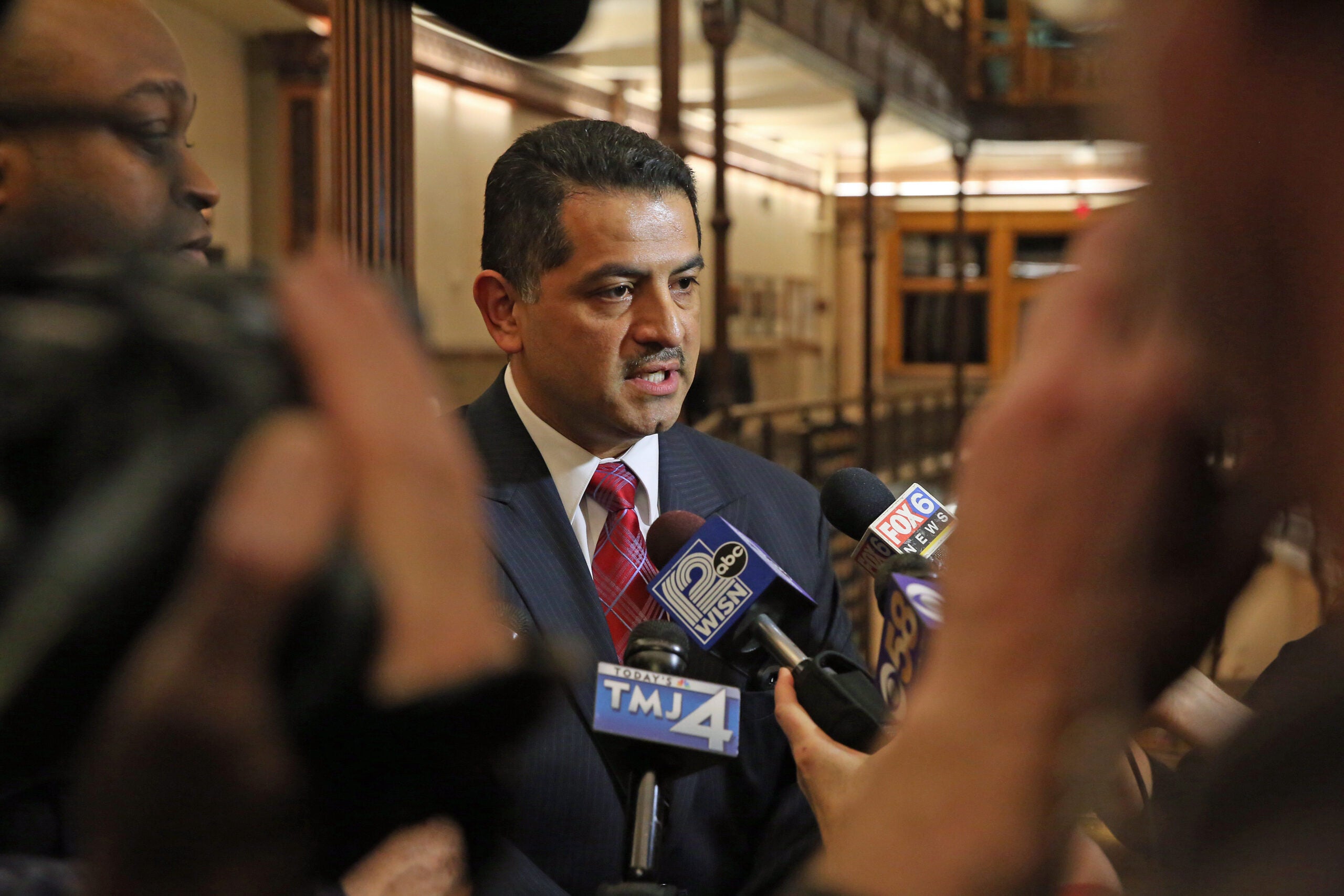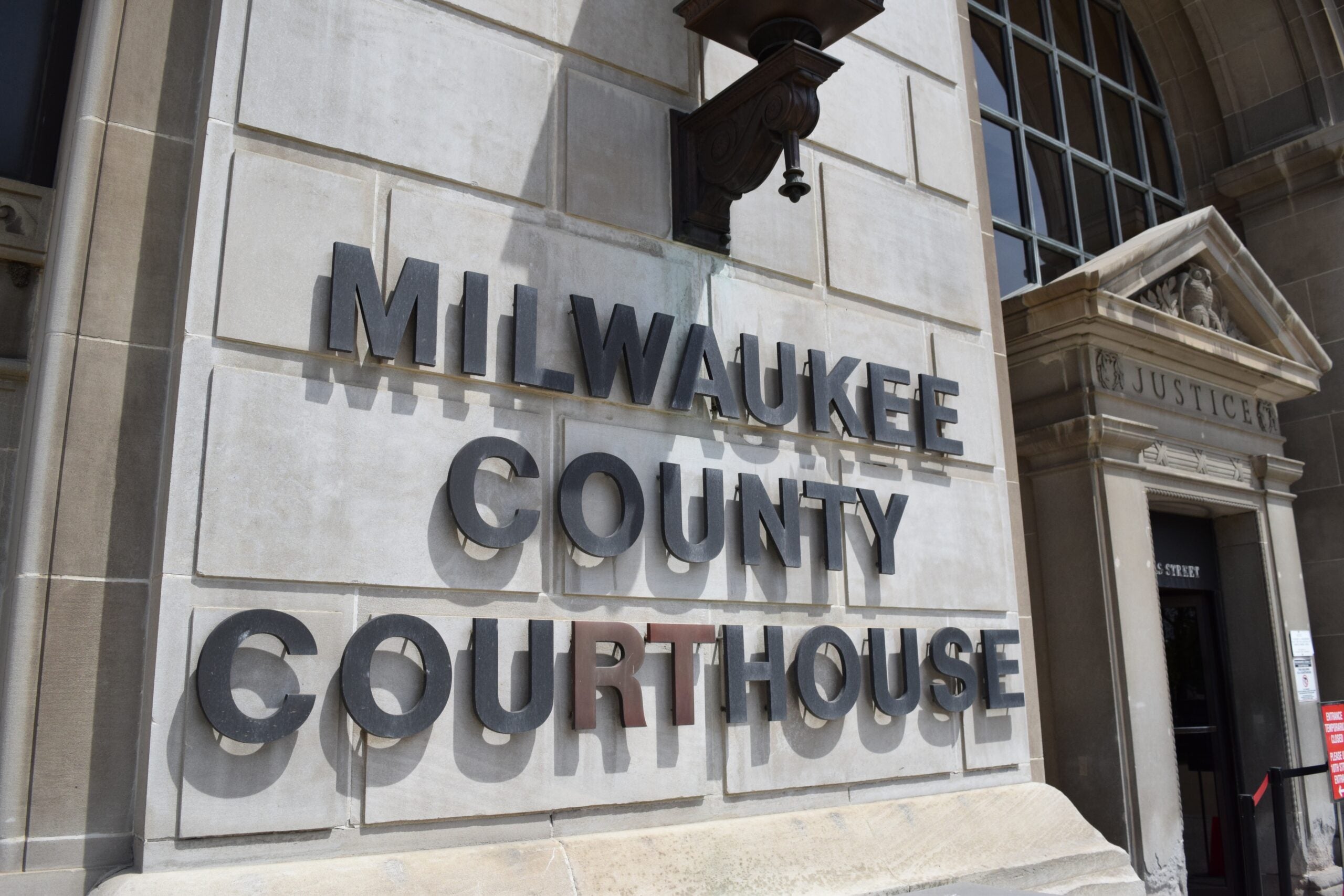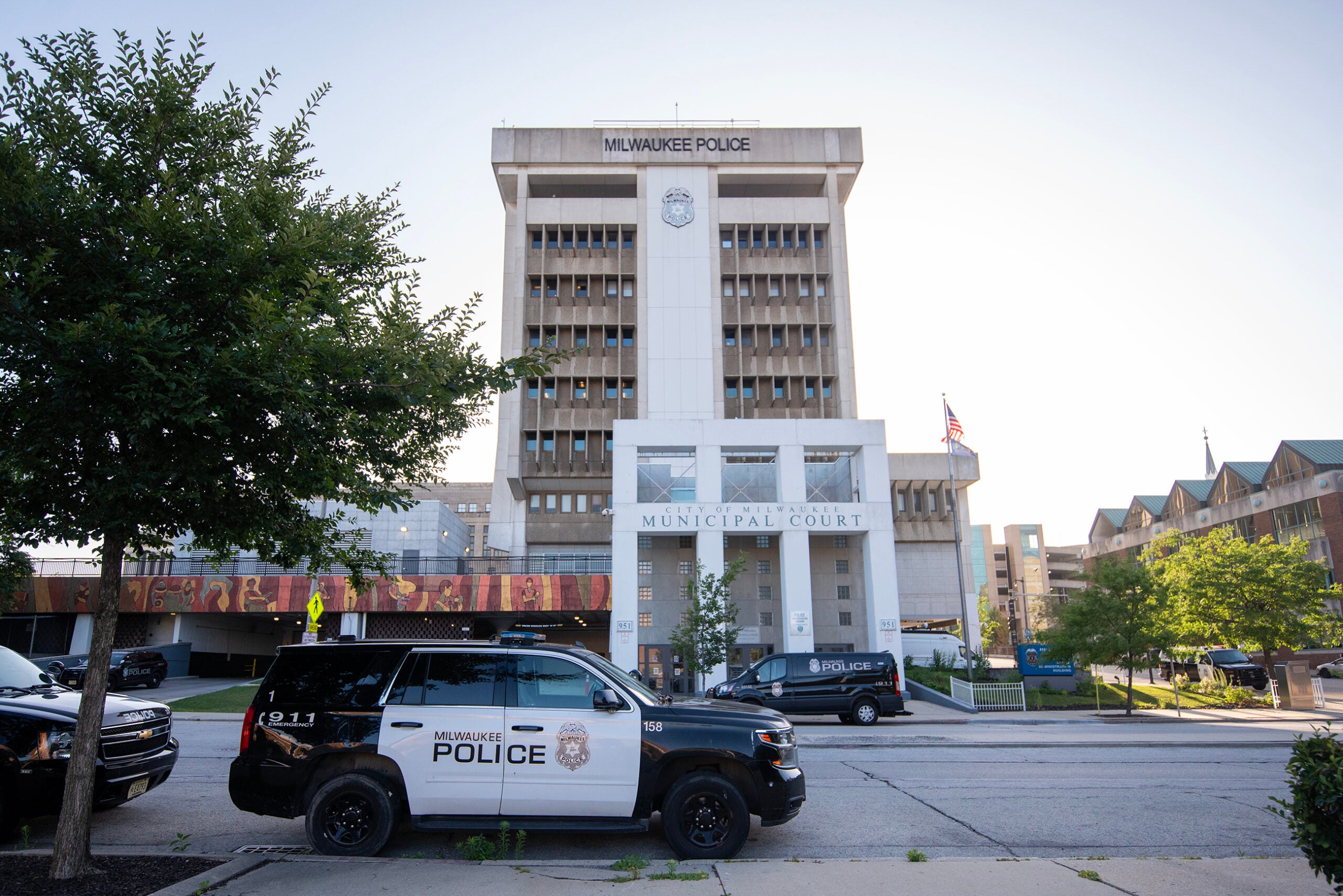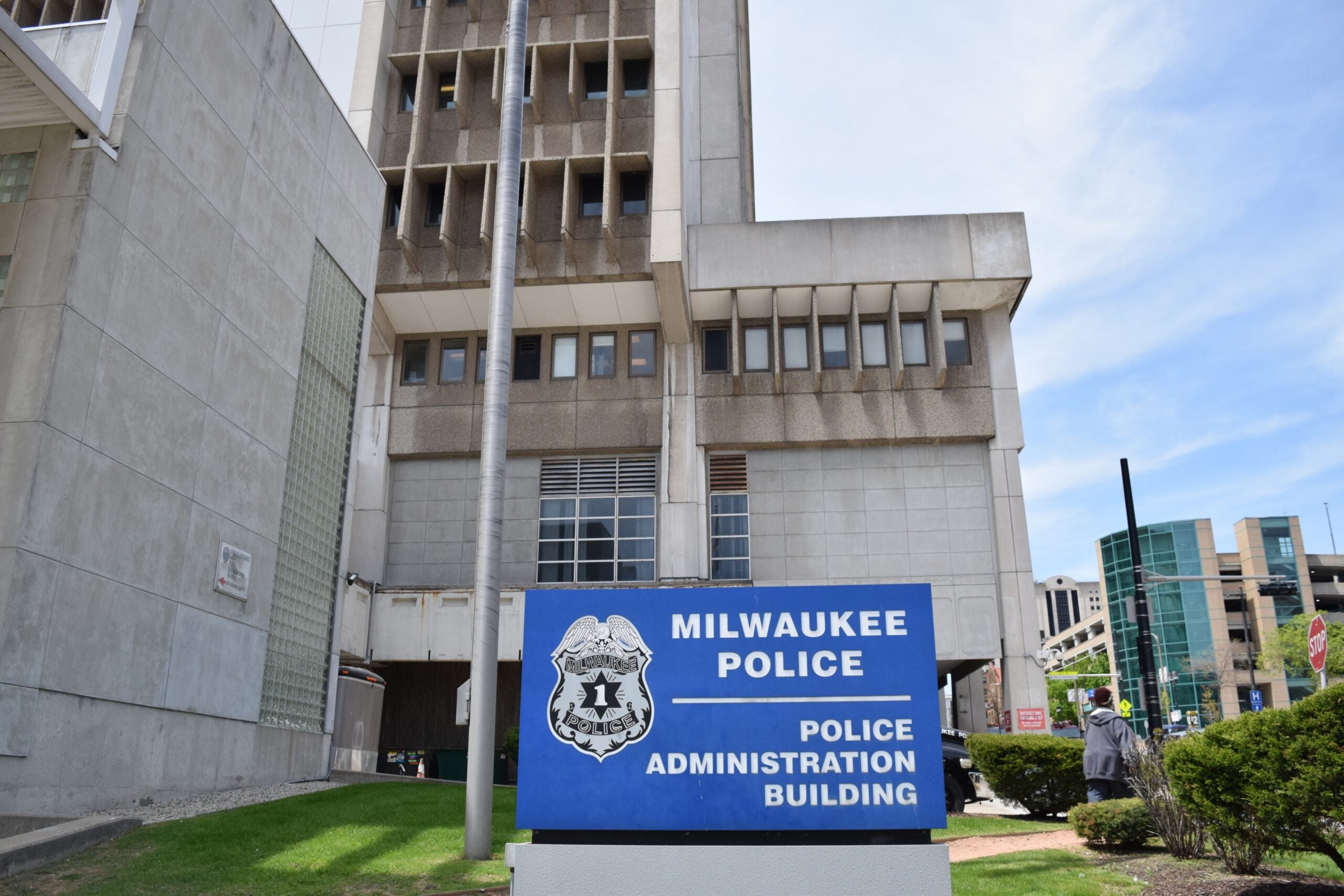Milwaukee’s police chief will need to create a community policing plan, improve his communication with the city’s civilian oversight board and clarify the department’s discipline standards if he wants to keep his job, the Fire and Police Commission said Monday night.
Members of the commission, a civilian board in charge of overseeing of the department, asked no questions in Monday evening’s public meeting, voting unanimously to adopt the new directives for Chief Alfonso Morales. A resolution to issue such directives had been the only item on their agenda.
News with a little more humanity
WPR’s “Wisconsin Today” newsletter keeps you connected to the state you love without feeling overwhelmed. No paywall. No agenda. No corporate filter.
The directives ranged from the community policing requirement to the implementation of the city’s mask-wearing mandate in the department, as well as a range of data requests and directions to be responsive to commission members. The public vote to adopt the directives followed a closed-session discussion with Morales last week, and it came as a group of seven Milwaukee City Council members released a statement Monday saying they had no confidence in Morales as chief.
Most of the Commission’s directives to Morales involved the creation of written plans or specific documentation. Most had deadlines by early August, and the directives, read at the meeting by Fire and Police Commission Executive Director Griselda Aldrete, specify that “failure to comply fully and promptly with these directives will result in disciplinary action by the board,” up to and including removal.
On Monday afternoon, the city’s police union leader at a press conference had predicted that Morales, who the union supports, would be fired or pushed out. Milwaukee Police Association President Dale Bormann called the chairman of the Fire and Police Commission “corrupt” and said removing Chief Alfonso Morales would be an “illegal act.”
Were Morales to be eventually fired, Bormann said, “I assume (the Commission) will appoint somebody who’s probably going to be a yes man into that position. … We definitely don’t need that at all. We need someone who’s actually going to stand up to (the Commission), stand up to the Common Council, stand up to people and get things done in the city to make it a safe city again.”
The commission appointed Morales to the position in 2018 following the retirement of former Chief Edward A. Flynn, and it renewed his contract in December. But he has received criticism this year as the nationwide protest movement against police brutality and racial injustice has brought new scrutiny of the department, its officers and its response to protests. Recently, one member of the commission harshly criticized Morales for the department’s use of tear gas in responding to protests.
On Monday, protesters outside the meeting chanted “Fire Chief Morales” and speakers called for his ouster.
Most of the criticism from activists and city leaders has centered on Morales’ inaction following the killing of Joel Acevedo by Officer Michael Mattioli.
Mattioli, 32, was off-duty and having a party at his home on April 19 when a fight broke out. Mattioli, who is white, straddled 25-year-old Acevedo, who was Hispanic, until he appeared to lose consciousness. Acevedo died in the hospital a week later as a result of his injuries. According to court documents, an officer who responded to the incident asked Mattioli if Acevedo was still breathing. Mattioli said he didn’t know. He was charged with first-degree reckless homicide in May.
Protesters and others in Milwaukee, including the mayor and multiple City Council members, object to the fact that Morales did not fire Mattioli. The Fire and Police Commission took over the investigation into whether Mattioli will stay employed at the department and what disciplinary measures he will face in his job as the criminal case proceeds in court.
A letter from the protest group The People’s Revolution with 74 signers said not firing Mattioli constitutes an “egregious failure to lead” by Morales.
“Mattioli … continues to draw a paycheck from the Milwaukee Police Department,” the letter reads. “For months, (Morales) had the authority to act definitively on Mattioli’s employment, yet he did not. He delayed, obstructed, haphazardly conducted a flawed internal investigation, and then threw his arms up in abdication when the Fire and Police Commission stepped in to begin what Morales had failed to do.”
It’s common for officers who are suspended during an investigation or criminal proceedings to receive their full pay. Mattioli has been on paid suspension since the incident April 19. According to a database of city salaries compiled by the Milwaukee Journal Sentinel, he earned $109,006 in 2019, plus $26,782 in overtime.
Milwaukee Mayor Tom Barrett said Morales should have fired Mattioli as soon as the district attorney charged him with homicide. Last month, a group of Milwaukee City Council members called on the public to weigh in on Morales’ job performance ahead of his performance review. The public meeting where that review was supposed to take place was scheduled for Thursday, but it was canceled.
In a statement provided to the commission, Joel Acevedo’s family said Morales was responsible for a “lack of transparency, the failure to discipline, and a culture of willful blindness” in the department. They endorsed his removal, “whether by resignation or termination.”
“It is our hope that this action will result in a change of culture,” they said through attorney B’Ivory LaMarr, “because the status quo will not suffice.”
Meanwhile the chairman of the Fire and Police Commission, Steven DeVougas, has drawn criticism from Morales, Barrett and the police union after an independent ethics report found he lied about his legal representation of a prominent real estate developer who is accused of rape. DeVougas has resisted calls to step down, including from the police union. The independent report also criticized aspects of the Police Department’s handling of the case.
Homicides in Milwaukee nearly doubled in the first half of 2020, compared to the first six months of 2019. That followed a 33 percent reduction in violent crimes over the last five years.
Wisconsin Public Radio, © Copyright 2025, Board of Regents of the University of Wisconsin System and Wisconsin Educational Communications Board.







